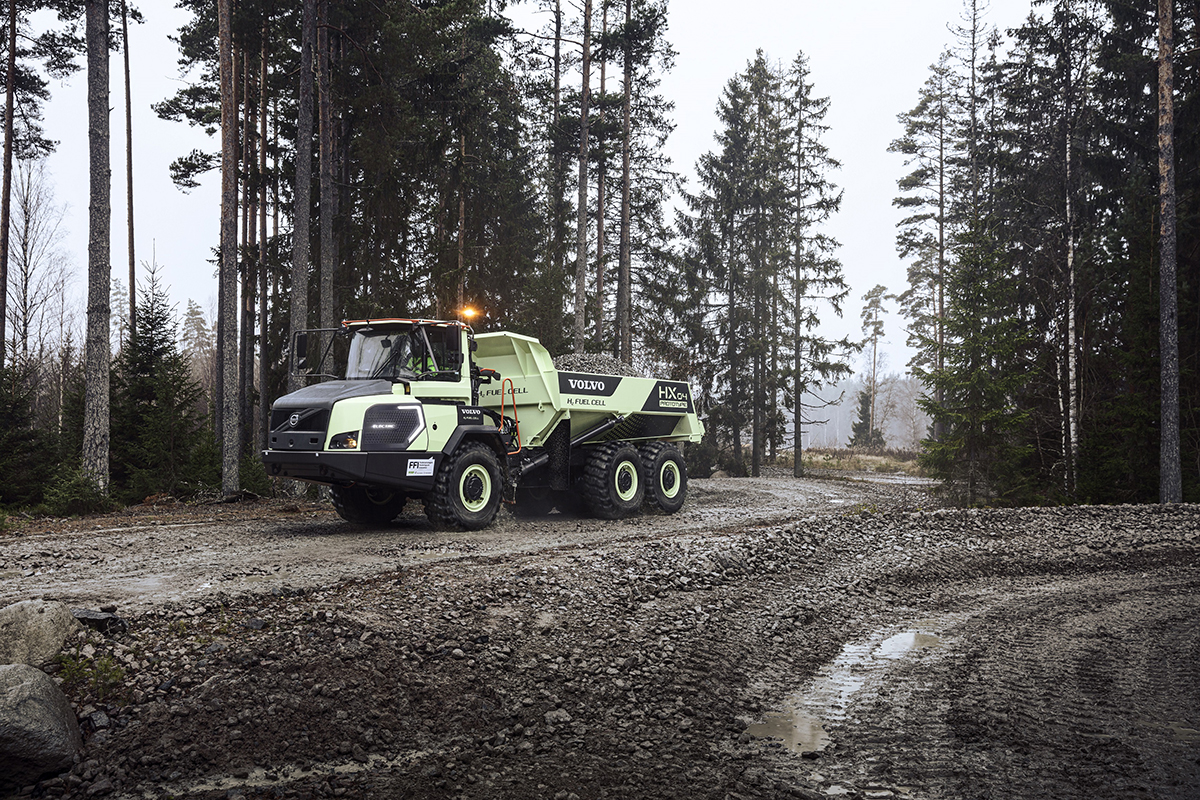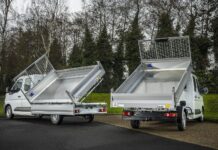VOLVO Construction Equipment has announced it has started testing the world’s first prototype hydrogen fuel cell articulated hauler.
The Volvo HX04 is the result of a research project running between 2018 and 2022, with funding from FFI, a collaboration between the Swedish Innovation Agency VINNOVA, Swedish Energy Agency, and Swedish Transport Administration, to support sustainable vehicle strategic research, innovation and development.
Partners include Volvo CE, RISE Research Institutes of Sweden – who provided specialist competence on driveline development and safety – and PowerCell Sweden, a developer of fuel cell-based hydrogen-electric power solutions.
Volvo revealed the development and building of the six-wheel prototype has largely been carried out at Volvo CE’s facility in Braås, Sweden.
Carolina Diez Ferrer, head of advanced engineering programs at Volvo CE, said, “Being inventors of the world’s first articulated hauler more than 55 years ago, we are happy and proud to again drive change with this fuel cell hauler concept. While an early prototype, this innovation will give valuable insights into the opportunities of hydrogen in the energy transformation alongside battery-electric solutions.
“We believe that by exploring multiple technologies and working in partnership we can create the best path forward to decarbonise the construction industry.”
Volvo added that as infrastructure for hydrogen is still in development, refuelling the Volvo HX04 is an ‘important aspect’ to solve in the project. Shell installed a hydrogen refuelling station at the Volvo CE test track.
Oliver Bishop, Shell’s general manager for Hydrogen mobility, added, “Providing the fuelling infrastructure for this innovative project gave Shell the opportunity to demonstrate our technical capabilities in hydrogen, and enabled us to support one of our key global collaboration partners in taking another step forward in their decarbonisation journey, which goes to the heart and intent of Shell’s Powering Progress strategy.”
The Volvo HX04 is charged with 12kg hydrogen in circa 7.5 minutes, enabling it to operate for approximately four hours. Volvo explained that fuel cells work by combining hydrogen with oxygen, with the resulting chemical reaction producing electricity which powers the machine. Fuel cells also produce heat that can be used for heating the cab.












